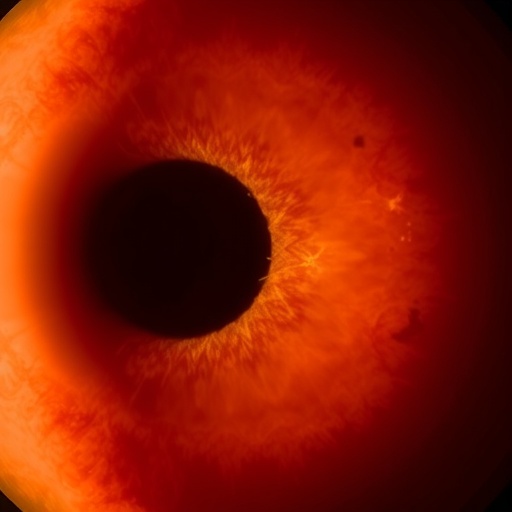
In a groundbreaking leap forward for cancer immunotherapy, researchers at UCLA have engineered a novel cell therapy designed to confront one of the most stubborn and deadly cancers: metastatic renal cell carcinoma, a particularly aggressive form of kidney cancer. This new treatment, named AlloCAR70-NKT, harnesses the power of genetically modified immune cells derived from stem cells to fight tumors with a multi-faceted approach that promises enhanced effectiveness, wider accessibility, and improved safety compared to current therapies.
Unlike traditional immunotherapies that require personalization by extracting, engineering, and re-infusing a patient’s own immune cells, AlloCAR70-NKT offers an off-the-shelf solution. This means the therapy can be mass-produced and readily available for any patient, circumventing the complex and time-consuming process of individual customization. This advancement could be revolutionary for patients battling rapidly progressing or advanced-stage kidney cancer, where time is critical, and conventional treatments often fail.
The team achieved this innovation by genetically programming natural killer T (NKT) cells, a unique subset of immune cells with innate cancer-fighting capabilities, derived from pluripotent stem cells. By equipping these NKT cells with a chimeric antigen receptor (CAR) specifically targeting CD70—a protein abundantly expressed on kidney cancer cells—the cells gain refined specificity, enabling them to identify and eradicate malignant cells more effectively. This precision targeting helps overcome challenges faced by existing CAR-T cell therapies, which have struggled with solid tumors due to inadequate tumor infiltration and the suppressive tumor microenvironment.
One of the defining features of AlloCAR70-NKT is its designed resistance to immune rejection. Typically, donor-derived immune cells risk being attacked and eliminated by the patient’s immune system, limiting their lifespan and therapeutic impact. The engineering process equips these cells to evade host immune responses, allowing them to persist longer in the patient’s body to sustain their anti-tumor activity while minimizing risks linked to chronic immune complications like graft-versus-host disease.
Preclinical studies revealed that the AlloCAR70-NKT cells orchestrate a strikingly comprehensive assault on kidney cancer. Firstly, these engineered cells kill tumor cells directly by leveraging both their CAR targeting CD70 and intrinsic NKT cell receptors. Remarkably, this dual recognition enables them to eliminate cancer cells even when CD70 expression is low—a common escape route tumors use to evade standard CAR therapies. This dual mechanism presents a significant advancement in ensuring thorough tumor clearance.
The therapy also confronts the challenge posed by the tumor microenvironment, a notoriously protective niche composed of immunosuppressive cells and molecules that shelter cancer cells from immune attack. AlloCAR70-NKT cells disrupt this environment, degrading the defensive barrier and rendering the tumor more vulnerable to immune system assault. By remodeling the microenvironment, the therapy not only attacks cancer but also weakens the tumor’s ability to resist treatment, potentially reducing relapse.
Another critical element of this multi-pronged approach is the elimination of CD70-positive host immune cells that would normally recognize and reject transplanted cells. By selectively targeting these host cells, the engineered NKT cells extend their own survival and function inside the patient, creating a more sustained therapeutic window. This strategic targeting helps maintain the presence and potency of the infused cells without permanently compromising the overall immune system.
Importantly, AlloCAR70-NKT cells are designed with a self-limiting lifespan within the body. They do not engraft permanently, substantially lowering the risk of prolonged immune suppression or autoimmune reactions, which have been troubling concerns in previous cellular immunotherapies. This safer profile enhances the therapy’s appeal, especially for patients with fragile immune systems or those suffering advanced-stage disease.
The breakthrough emerges from a collaboration of scientists across UCLA’s Jonsson Comprehensive Cancer Center and the Eli and Edythe Broad Center of Regenerative Medicine and Stem Cell Research, blending expertise in molecular pharmacology, immunology, and regenerative medicine. The research, co-led by Drs. Lily Wu, Lili Yang, and Arnold Chin, underscores the power of interdisciplinary innovation in overcoming complex biological hurdles.
Published in Cell Reports Medicine, the study delineates not only proof-of-concept efficacy in preclinical models but also illuminates the molecular engineering strategies behind this therapy’s success. By capitalizing on stem cell biology to generate a consistent and scalable source of immune cells, the researchers outline a path toward more reliable and cost-effective production of cellular therapies.
This promising advance could transform outcomes for patients diagnosed with metastatic renal cell carcinoma, a disease notoriously resistant to both immunotherapy and targeted agents. Currently, the five-year survival rate lingers at an unacceptably low 12%, signaling an urgent clinical need that AlloCAR70-NKT seeks to address.
The approach opens avenues for expanding the therapeutic landscape beyond kidney cancer, inspiring the development of similar “off-the-shelf” immunotherapies geared to tackle a variety of solid tumors. By efficiently overcoming tumor-specific immune evasion tactics and the suppressive microenvironment, this therapy exemplifies the next generation of intelligent cancer treatments.
With ongoing support from organizations such as the California Institute for Regenerative Medicine, the Parker Institute for Cancer Immunotherapy, and the U.S. Department of Defense’s Kidney Cancer Research Program, the UCLA team is advancing toward clinical translation. Their goal is to validate the safety and efficacy of AlloCAR70-NKT in human patients, hoping to bring new hope to individuals facing this formidable disease.
This innovative therapy epitomizes a significant stride in cancer immunology, offering a multi-dimensional, scalable, and safer cellular immunotherapy. If successful in clinical settings, AlloCAR70-NKT could redefine treatment paradigms for metastatic kidney cancer, illuminating a path toward improved survival and quality of life for many patients worldwide.
Subject of Research: Immunotherapy for metastatic renal cell carcinoma using engineered allogeneic CAR-NKT cells derived from stem cells.
Article Title: Not specified in the text.
Web References:
https://doi.org/10.1016/j.xcrm.2025.102321
https://www.uclahealth.org/cancer/members/lily-wu
https://www.uclahealth.org/cancer/members/lili-yang
https://www.uclahealth.org/cancer/members/arnold-chin
References:
Study published in Cell Reports Medicine, DOI: 10.1016/j.xcrm.2025.102321
Image Credits: Not provided.
Keywords: Kidney cancer, Cancer immunology, Immunotherapy, CAR-NKT cells, Stem cell-derived immune therapy, Metastatic renal cell carcinoma
Tags: advanced renal cell carcinoma therapyAlloCAR70-NKT therapychimeric antigen receptor technologyengineered immune cells for cancergenetically modified NKT cellsinnovative cancer therapiesmetastatic kidney cancer treatmentoff-the-shelf immunotherapy solutionspersonalized vs off-the-shelf treatmentsrapid response cancer treatmentstem cell-derived immune therapyUCLA cancer immunotherapy




